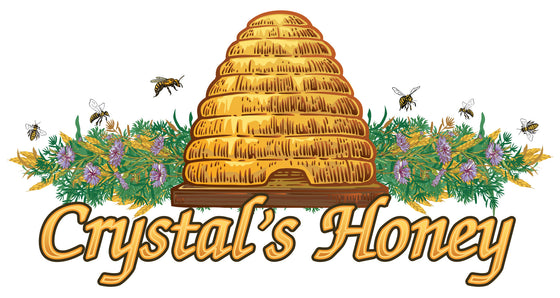If you’ve explored the honey aisle or natural health products, you might have discovered bee bread and bee pollen. These treasures from our hardworking bee friends pack a powerful punch in nutrition and health benefits. But what sets them apart? Explore the differences between bee bread and bee pollen to unravel their unique characteristics, uses, and benefits.
Unpacking Bee Bread: What It Is and Why It Matters
Bee bread might not be the first thing you imagine when you think of bee food, yet it plays a crucial role in the hive. Bees create bee bread by fermenting a mixture of pollen, bee saliva, and nectar. To do this, they collect pollen, mix it with saliva, and store it in honeycomb cells to ferment.
This natural fermentation process enhances the bread’s nutritional profile and makes it a staple food for bees. Bee bread offers a rich source of proteins, fats, vitamins, and minerals, making it a powerful superfood.
Bee Pollen: The Raw Power of Nature
Bees use bee pollen as the raw ingredient to create bee bread by collecting pollen from flowers, packing it into pollen baskets on their hind legs, and returning to the hive. They often store or convert this bee pollen into bee bread.
Natural bee pollen contains carbohydrates, proteins, lipids, vitamins, and minerals. Many consider it a complete food because it contains nearly all the nutrients humans need.
The Nutritional Buzz: Comparing Bee Bread and Bee Pollen
In terms of nutrition, bee bread and bee pollen both offer plenty of benefits. Bee bread’s fermentation process makes its nutrients more bioavailable, allowing our bodies to absorb them more easily. Bee bread is also a powerhouse of energy due to its higher protein and amino acid content.
Bee pollen, while also nutrient-dense, offers a different nutritional profile with a higher concentration of carbohydrates and antioxidants. Both options deliver essential vitamins and minerals, but the fermented nature of bee bread gives it an edge in terms of digestibility.
Specific Health Benefits: Bringing Buzz to Your Life
Bee bread and bee pollen offer an impressive array of health benefits. Bee bread boosts energy levels, supports immune function, and promotes gut health due to its probiotic properties. Bee pollen shines as an antioxidant champion, as it combats inflammation and supports heart health. Incorporating them into your diet provides a natural and convenient way to enhance your health, whether you’re looking to boost gut health or incorporate more antioxidants.
Choosing the Right Buzz for You
With the differences between bee bread and bee pollen laid out, your choice depends on your health goals. If you seek easily digestible nutrients and probiotic support, you might choose bee bread. On the other hand, if you want an antioxidant boost, you could opt for bee pollen. Exploring these bee-derived wonders opens a world of natural flavors and nutrition. If you are new to these products, make sure to consult a health-care expert before adding them to your diet.
Whether you feel drawn to the fermented richness of bee bread or the raw vitality of bee pollen, understanding the differences between bee bread and bee pollen can help you incorporate these treasures into your routine and bring a touch of nature’s sweetness into your life.
